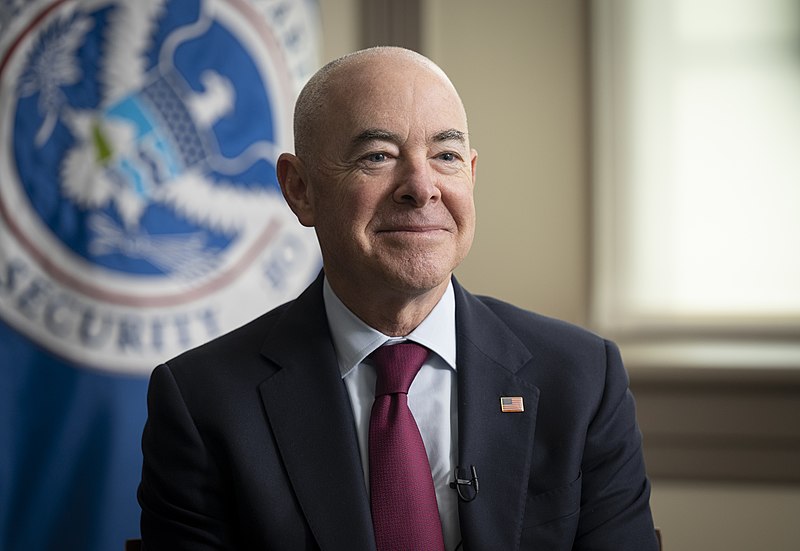- 14 3402-5578
- Rua Hygino Muzy Filho, 737, MARÍLIA - SP
- contato@latinoobservatory.org
 DHSgov
DHSgov
There was a significant drop in illegal crossings at the U.S.-Mexico border in May of this year, which decreased by more than 50% compared to the record highs of December 2023. Government data obtained by CBS News shows that the average daily apprehension dropped from 8,000 in December to approximately 3,700 in May. This trend represents the third consecutive month-over-month decline, with seizures projected between 110,000 and 120,000 for May, up from 137,000 in March and 129,000 in April.
The decrease in crossings is partly attributed to the Mexican government's crackdown on migrants and the Biden administration's actions, such as strengthening law enforcement and creating legal pathways for safe and orderly immigration. Homeland Security Secretary Alejandro Mayorkas highlighted these efforts in an interview with CBS News, emphasizing the reduction in encounters at the southern border.
That drop is politically favorable for Biden, who faces criticism from both moderate Republicans and Democrats, who consider his immigration policy lenient, and progressives, who accuse him of adopting Trump-era policies. Immigration is a major issue for voters ahead of November's presidential election.
Biden is considering an executive order to suspend asylum processing at the southern border in the event of an increase in illegal crossings, using presidential authority 212(f). While not yet confirmed, Mayorkas said all options are being considered to bolster border security.
The Biden administration has been pushing Congress for an overhaul of the U.S. immigration system, warning of potential legal challenges to executive actions. Recently, a bipartisan bill on border security was rejected in the Senate, highlighting Republican opposition. The proposal sought to give the president the power to suspend asylum when illegal crossings reached certain levels, keeping asylum processing at official ports of entry and allowing migrants who passed asylum interviews to work immediately.
Mayorkas expressed disappointment at the rejection of the deal, accusing some of wanting to keep the problem politically motivated rather than seeking solutions for border and national security.











